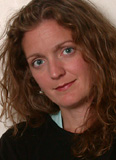

Wendi Pickerel
 B.A.
Latin American Studies- 2002
B.A.
Latin American Studies- 2002
After four years of international studies focused on Latin America, a year and a half living and working abroad in Latin countries, and four years working in Washington State with some of the poorest communities in the United States, three questions, paired with a creative interest in photography and oral histories, have emerged for me.
First, how can we better comprehend the interdependence, societal and economic, of regional communities on one another within the context of merging global relations?
Second, how do these merging global relationships create or prevent poverty and environmental destruction? For example, when I purchase a rose here in Seattle do I know that 70% of the roses produced in the United States are imported daily from Ecuador and Columbia but more importantly, do I know what kind of economic development and environmental destruction this encourages in these countries? The negative impact of that simple purchase can be felt daily in these majority world economies as it fuels their governments and investors to pursue economic development schemes, such as rose plantations, that support a cycle of increasing national debt, dependence on a export commodity, and the economic and social displacement of its people. Furthermore, how does it affect our own community's economy? This cycle and how it affects communities far removed from our sight, as well as our own community's well being, is clearly explained by Naomi Klein in her book No Logo.
The previous questions led me to my third; in a society that seemingly no longer responds to the methods of change traditionally embraced by activists, new tactics must be employed - who is the majority and what do they see and hear that motivates them? Because of these questions, I have begun to consider how media can be used as an activist's tool. For myself, I want to understand how I can use photography and text to tell this story of interdependence, of the web of cause and effect we live in; I want to make these processes and connections from our community to those in far removed communities more transparent with layers of images and text. To these ends, during the 2001-2002 academic year I came in contact with a number of organizations that are attempting to use imagery in new ways to communicate this idea of transparency. With the support of a Mary Gates Leadership grant and in association with the Center for Communications and Civic Engagement (CCCE), my interests resulted in interviews with Kalle Lasn, editor in chief of Adbusters, Alistair Jackson of the Transparency Center, and Mark Hosler of Negativland in the spring of 2002.